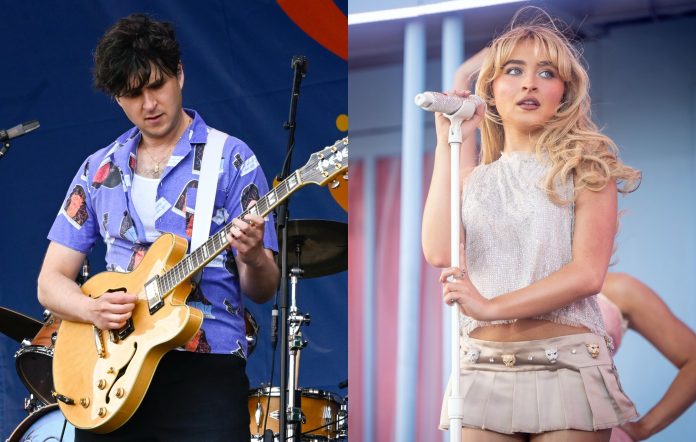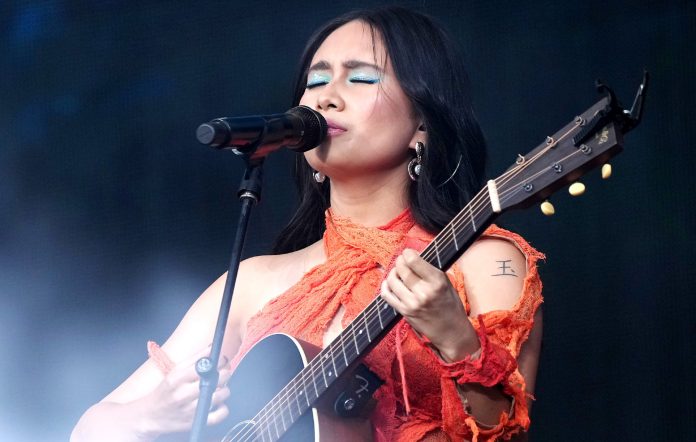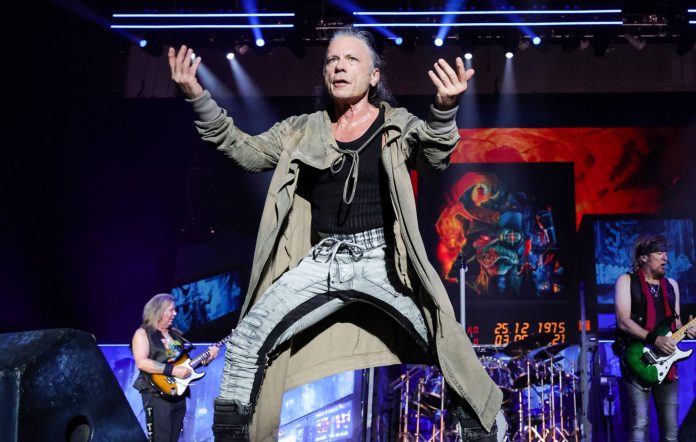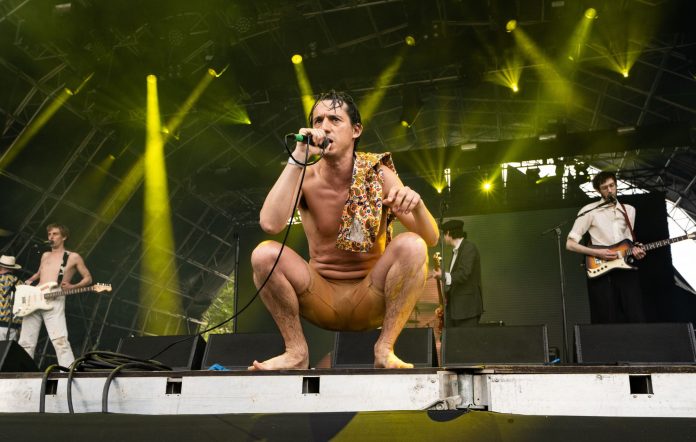Upcoming 100: What initially drew you to music, and how did you discover your passion for it?
Cruz: I have always been inspired by Jennifer Lopez, Shakira and Britney Spears and Rihanna. I remember myself, as a child, in front of the TV, copying out the choreographies and their facial expressions. Not only that, but I re-watched their lives, concerts on loop to do the same thing again. In addition, I took jazz, classical and hip hop lessons when I was young. I always loved putting on a show,
At 16, I recorded my first song in the studio, a song written by my brother. My brother has always supported me in my music career. This experience in the studio changed my life. I've always loved the process of songwriting and the process of recording a song.
But mostly, my life experiences drew me to music. I was bullied at school, I lacked self-confidence and I was stuttering. I lost my dad at 20, the person who meant the most to me who always supported and encouraged me to pursue my dreams. Music was the way for me to express myself and believe in myself, it freed me from my chains, from my doubts.
Both of my parents were music fans. We could always hear music at home or even by car with them. Music was an integral part of our household. Whether it was French, American, English, Cuban and Christian music.
Upcoming 100: Can you describe your unique musical style and how it has evolved over time?
Cruz: My style is a mix of pop and alternative. But if you consider ‘’ they talk, they know ‘’ is a pop ballad, then I went to a pop electropop-teen pop (inspired by Britney Spears) ‘’ Hadi durma ‘’ which means ‘’ Don’t stop ‘’ in English. Then ‘’ Daddy'', which Is a sad song and talks about the death of my father, And the other song are more indie pop. For the next songs, I would like to go into nu disco and funk. A song that inspires me a lot is Dua Lipa's latest song, ''Illusion'' and Dua Lipa's ''Future Nostalgia’’ last album.
My main influences are Dua Lipa, Nelly Furtado, Inna, Lola and Marsh, Depeche Mode, the script, Maroon 5, Rihanna, Kylie Minogue, Hurts, Sza, Selena Gomez, and Nicole Scherzinger. Maitre Gims, Stromae. I listen to a lot of Turkish artistic artists like Simge Sagin, Demet Akalin, Murat Boz, and Sefo, who I find very artistic.
The fact that I speak several languages French, Dutch, German, English, Turkish and Lingala (the language of the Congo) inspires me a lot in my style. My style will definitely evolve, I am particularly thinking of putting more Afro beat and Congolese rumba influence in my music. I would later like to write in the other languages I speak.
I listen to Romanian, Turkish, French, Dutch, German music. Besides, just a month ago, I was in Congo, I was very inspired by this place, a country where music is enormously important.
Upcoming 100: What is your songwriting process like, and how do you turn personal experiences or emotions into lyrics?
Cruz: Regarding my songwriting process. First, I listen to the beat completely at least twice, to brainstorm the ideas that come up to me. I write down the ideas that come to me on the notepad of my phone or on a sheet of paper. Then, I listen to the song a 3rd time, and I cut the song into verse, hook, bridge and chorus. Whenever randomly, an idea pops up into my head I use my voice recorder and start recording.
I searched all the keywords regarding emotions and personal experiences. I also get inspiration from reading poems related to the story that I wanna tell on a song. This technic helps me to create imaginative sentences and change the dynamics of the song. Finally, I also use a website where you can easily find word rhythms, it's something that helps me finish the ends of sentences.
Upcoming 100: How do you collaborate with other musicians, producers, or songwriters to create your music, and what have been some successful collaborations?
Cruz: I find the best gems on beatsstars.com or by searching for beats on YouTube beats inspired by artists who inspire me like Lana del rey, sza or even Dua lipa.
The most successful collaboration is so far with Maxx Beats( Mr.Mig) who is the producer of “They Talk ,They Know” . There’s also a Spanish version of it . Additionally, I composed a Turkish song with one of his beats.
I found Maxx beat's beats super easy to write and to imagine the right scenario. I never struggle to find the right lyrics. His beats are fire and have that Britney Spears vibe that I love. He is very talented and very kind.
I'm proud of "they talk , they know" a song I wrote during covid . And I was able to bring together more than 40 extras from all over the world who volunteered to film themselves during quarantine to be part of the art music video of ‘’they talk, they know’’
Unfortunately, I have not yet collaborated with other musicians and songwriters. But I’m really looking forward to collaborate with other musicians and songwriters.
Upcoming 100: How do you handle writer's block or moments of self-doubt, and what strategies do you use to overcome them?
Cruz: When I get stuck, I always try to reimagine the scenario of the song as a short film, and replay each scene, and see which scene or scenes are missing. I educate myself with the YouTube channel ''how to write songs'' and ''studio'', they give a lot of advice, tips even coming from artists like SZA and Charlie Puth who are two composers and artists that I admire their writing style. I helped myself with rhymezone.com/ to help me find rhythm in the songs and in each verse.
Finally, I use my phone's voice recording a lot when I have inspiration, and my phone's notepad during my songwriting process.
I don't hesitate to go to the studio to record several versions of a song. And then, have them listen to them on my social medias or to my loved ones, and ask them which version they prefer.
Upcoming 100: Tell us about a challenging project or song you've worked on and the lessons you learned from it.
Cruz: I had a African producer come up to me with an afrobeat that he sent to me. I tried to come up with something, but it didn’t feel right; it didn’t feel like it was my identity. Furthermore, I had a block while writing; I could only come up with one verse, and then I was stuck for weeks . Moreover, I learned through this experience to stick to your music style, or if you want to switch up to another type of music style to really dive into the new style before going into the songwriting process. Before any collaboration between producer or any other artist , to really have a real talk about the musical direction that we want to head to . And moreover, why not do some brainstorming before going deep into the songwriting process?
Upcoming 100: How do you balance your artistic vision with the expectations of your record label, management, or fans when creating new music?
Cruz: I don't have no management and no label. But I always try to be faithful to my identity . What has always dictated my instinct as a composer is the themes of life (depression, the loss of a loved one, the dictates of society, mental health). I have always been faithful based on what I have experienced and how my music could inspire or echo what anyone may one day experience and endure in their life.
I also draw inspiration from my favorite songs of the moment or from certain albums of artists who can represent an influence in the artistic direction I take. I get inspired. Anything that moves me musically, I can find inspiration. I always listen to my intuition.
I am inspired by everything that moves me musically. I am inspired by several elements, the sound, the energy, the instruments or the lexical field of certain songs.
Upcoming 100: Can you discuss the importance of live performances in your career, and how you prepare for concerts or tours?
Cruz: For me, live performance, is connecting the dots with the audience and putting on a show. I always want to come up with a new choreography or new dance move. I'm always looking for ways to improve the scenography. Furthermore, I like choosing the right lights upon the stage.
I like to rehearse as early as possible, as soon as I know I have to perform. I like to rehearse the voice part and the stage and choreography part separately. Then, as soon as I master both aspects of the show (the voice and the stage/choreography part), I rehearse again.
I tend to do the mic check the day before and 3 hours before the show, soak up the place and its energy, and imagine myself on stage before performing
Choosing my outfit is an important element. I always choose an outfit that matches the type of scene and event (hotel residence, restaurant, nightclub). I always like to respect the type of audience, whether there are children, young people or adults. I of course like to feel good in my stage outfit and to feel confident. I always get my hair done the same day and my makeup done before the live show.
Upcoming 100: How do you stay current with trends and advancements in the music industry, and what resources do you use to continue learning and growing as an artist?
Cruz: I am Congolese, German and Portuguese, born and raised in Belgium. Thanks to these cultures, I already have a huge range of influences within me, such as the Congolese rumba music style or Stromae who is a Belgian artist that I look up to.
When I travel abroad, I often come across new artists while listening to the radio or strolling around the cities. Shazam is my ultimate go-to application to discover new songs and new artists.
I am inspired by young Belgian artists, and I follow them thanks to alternative media like Tarmac or TikTok.
Me and my brother and sisters always share with one another new songs and new artists, who are all music lovers.
Upcoming 100: How do you measure success as a music artist, and what goals do you set for yourself in both the short and long term?
Cruz: I measure success by receiving interest from several types of media who want to know me and my music. To have the opportunity for my music to be listened to by people from all over the world, people of different ages and different social levels. When, I have the possibility of having a reaction, from a fan or a listener who was touched by the words of my music or who was able to keep believe in herself despite feeling down and unmotivated.
My short term goal would be to be able to collaborate with other songwriters on a song, in order to be able to mix and exchange our ideas on a song. And I would like to share a duet with artists regardless of whether it is in English, Spanish, Turkish. My ultimate goals would be to be signed with a record deal and also to be managed by a team. I believe that it is always essential to work with specialists who know their work better than me. I believe that teamwork always brings u further.
Upcoming 100: In your opinion, what are the most important qualities for a music artist to possess, and how do you cultivate these qualities within yourself?
Cruz: In my opinion , one of the most important qualities for a music artist is to be your best critic and to have a brand new look at your music. And to always reflect on your journey and see what made you starting the music and how u can inspire new people to follow your music.
I always tend to look at the reactions, the comments and the opinions that people share on my music. I always re-watch my live performances with an outside view of a person who will not know my music and my identity, but how I could capture the attention and interest of an audience who doesn't know me.
I am a perfectionist, I see the details and the errors. After each live performance or studio recording, I write down my own comments and what I can improve (my highs, my lows, my posture on stage).


.jpg?resize=1800,1200&w=450)






